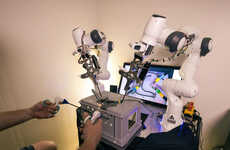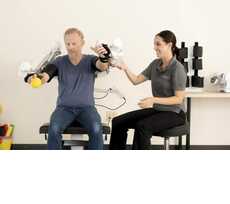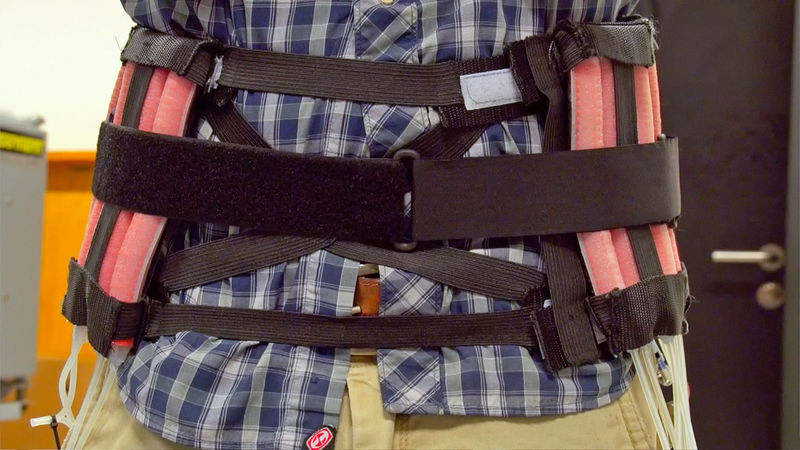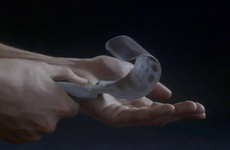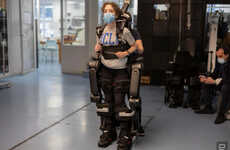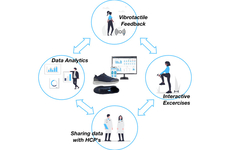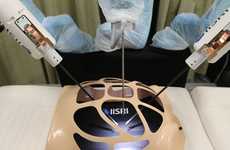
The EPFL's Reconfigurable Robotics Lab's Robots Can Mimic Human Muscles
References: actu.epfl.ch & engadget
Ecole Polytechnique Federal de Lausanne's Reconfigurable Robotics Lab has been on the cutting edge of soft robotics technology since the inception of the technology. Though the team has been able to develop interesting concepts thus far, their latest innovation has the potential to aid the physical therapy industry and help people heal immediately.
The Reconfigurable Robotics Lab's new soft robot can accurately mimic human muscles. The robots are made entirely from silicon and rubber, and their faux-muscles are controlled by manipulating the amount of air inside them. These robots could help people with injuries or illnesses learn to use their muscles again by providing extra strength when needed (such as helping people to balance while standing.)
The soft robots are also made using inexpensive materials, which makes them much easier to reproduce on a large scale.
The Reconfigurable Robotics Lab's new soft robot can accurately mimic human muscles. The robots are made entirely from silicon and rubber, and their faux-muscles are controlled by manipulating the amount of air inside them. These robots could help people with injuries or illnesses learn to use their muscles again by providing extra strength when needed (such as helping people to balance while standing.)
The soft robots are also made using inexpensive materials, which makes them much easier to reproduce on a large scale.
Trend Themes
1. Soft Robotics - The development of soft robotics presents disruptive innovation opportunities for industries such as healthcare, manufacturing, and assistive technology.
2. Medical Rehabilitation - Advancements in soft robot technology offer disruptive innovation opportunities in the medical rehabilitation industry, providing new ways to aid in physical therapy and accelerate recovery.
3. Low-cost Materials - The use of inexpensive materials in soft robot manufacturing creates disruptive innovation opportunities for industries looking to scale production and reduce costs, such as healthcare, education, and prosthetics.
Industry Implications
1. Healthcare - The healthcare industry can explore disruptive innovation opportunities by integrating soft robot technology into medical rehabilitation, prosthetics, and assistive devices.
2. Manufacturing - Soft robot technology presents disruptive innovation opportunities in the manufacturing industry, enabling flexible and customizable automation solutions.
3. Assistive Technology - The application of soft robotics in assistive technology offers disruptive innovation opportunities for industries focused on enhancing accessibility and independence for individuals with disabilities.
1.3
Score
Popularity
Activity
Freshness



